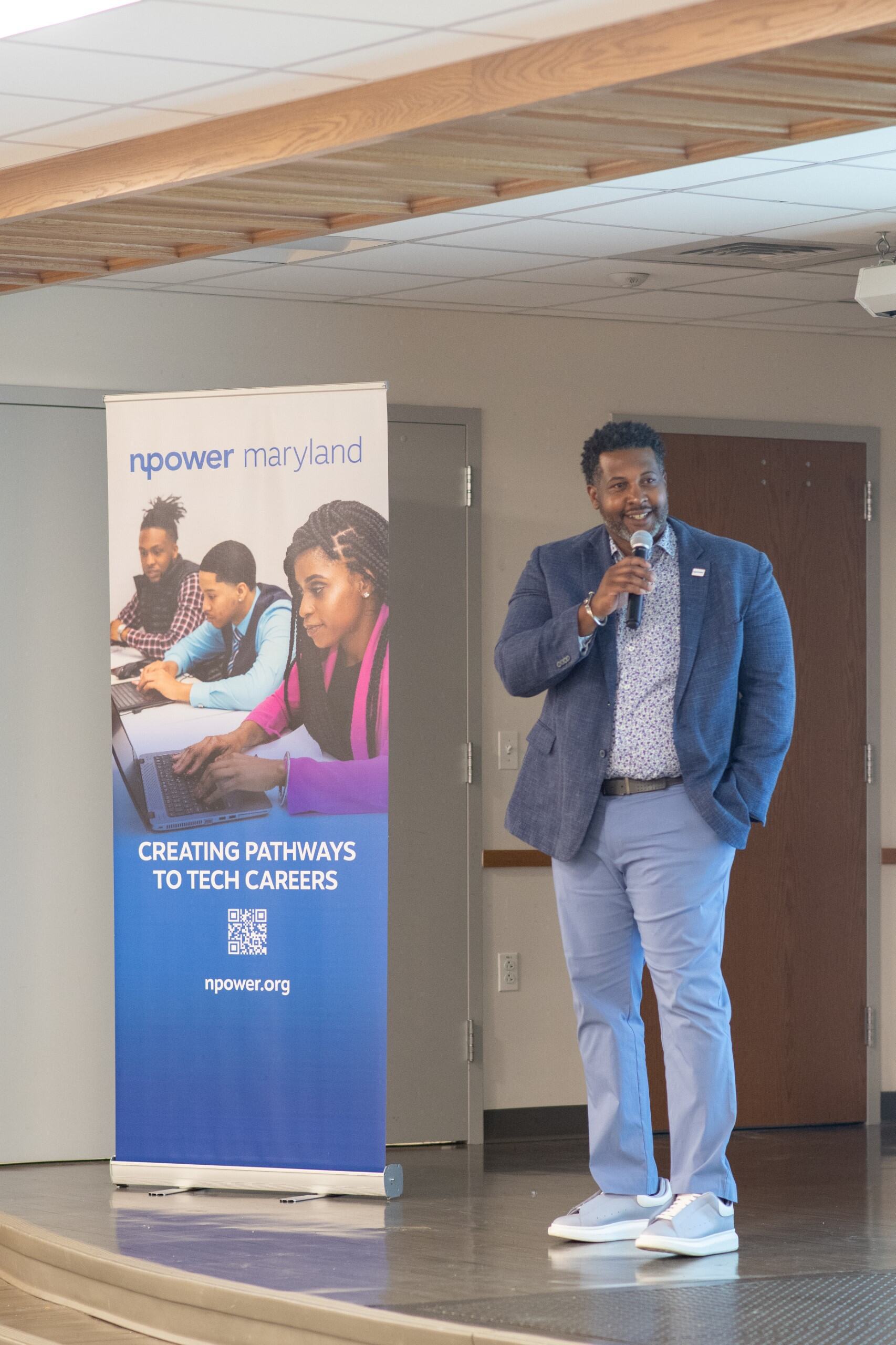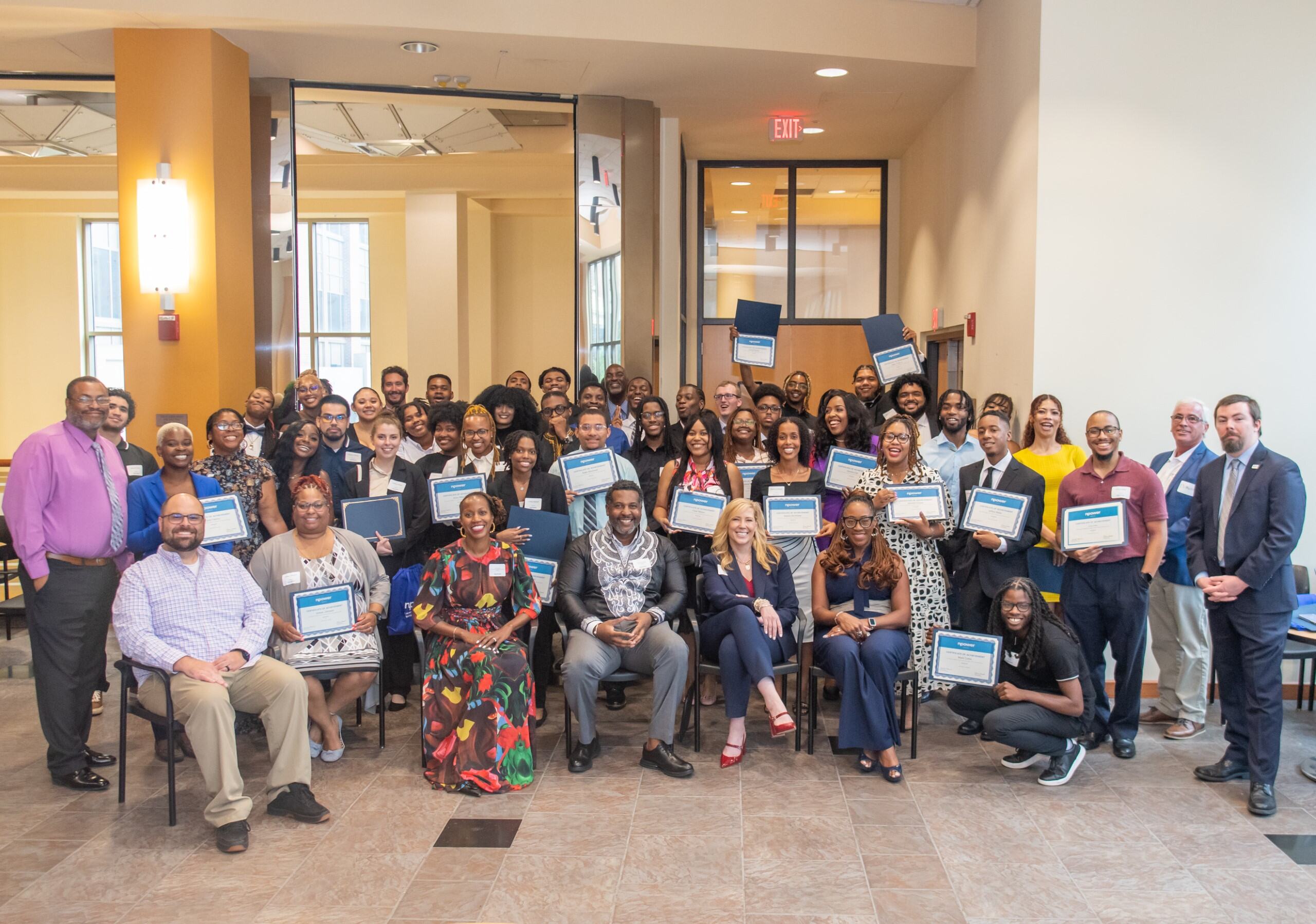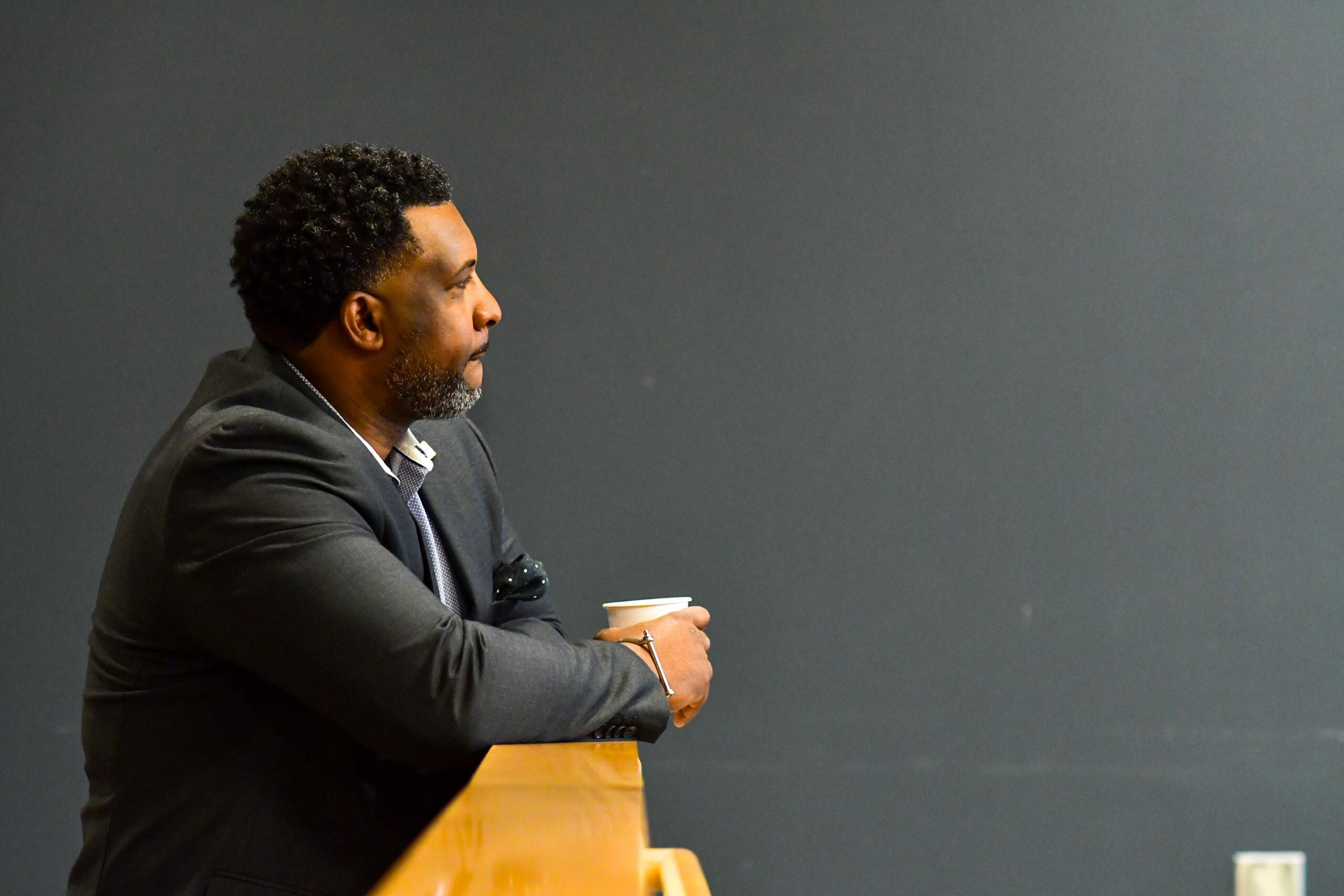Demetrius Goodwin learned a lot through a four-year program — but not the typical one from college to a tech career you might suspect.
He instead spent that time serving with the US Army Signal Corps, a military branch that creates and manages communications and information systems for the armed forces, in the early 2000s. The experience taught the now-49-year-old resilience, discipline, a focus on missions and leadership skills that he takes into his job every day. He cited one particular lesson from a battalion-wide meeting.
“One of the command sergeant majors stood up. He said, ‘I’m not always the smartest person in the room, but I’m smart enough to put good people around me,’” Goodwin said. “That stuck with me: Saying you don’t always have to have all the answers, but be humble enough to put good people around you to help you execute the mission.”
Now, as executive director of the tech workforce development nonprofit NPower’s Maryland branch, Goodwin is helping people — including many veterans — get the certifications and experience necessary to succeed in the tech field.
The resident of Baltimore’s Reservoir Hill neighborhood encourages aspiring technologists to “look for your lane.” That doesn’t necessarily mean attending a four-year university, he said.
“If you have a passion for tech, whatever lane you find yourself in,” Goodwin told Technical.ly, “try to position yourself to take full advantage of that passion.”
He dived into the start of his tech journey in childhood, how his role at NPower evolved and his curiosity toward cybersecurity in an interview with Technical.ly.
This Q&A has been edited for length and clarity.
What did the beginning of your tech journey look like?
The journey is a little bit non-traditional — and when we say “my tech journey,” I’ll explain what that really looks like.
As a kid, I would take apart radios and different things, and then take the motors out and build other stuff with it. I always had that kind of aptitude or interest in tech.
In the military, I found myself in the US Army Signal Corps. We established data, voice and satellite communications. When I finished the military, I actually went and studied biology [at Augusta State University], believe it or not. I wanted a transition out [the] space I was in, which was more of the business development, IT recruitment, account management space.
[I asked], how can I combine my love and interest with tech, working with veterans — which I was at the time — working with young adults, and then being more on the programmatic side? I started a search, and NPower was perfect. So I reached out and started the journey.
What does your day-to-day look like at NPower?
I’m not a tech guy. I’m not somewhere coding or programming. It’s more so about the leadership of the team that we have here.
Our goal and mission is to get folks trained and introduced to tech. My day-to-day may be going [to talk to] a local organization about who I am and what we do, forming different relationships and partnerships to help grow, and better position us as a practitioner of tech training in the region. It could be looking at grant opportunities or funding opportunities for the organization. It’s more an administrative role than a practitioner’s role.

How has NPower changed since you started?
Our core mission and vision haven’t changed too much. What we’ve had to take a look at is our curricula and what we actually train our students in: What is the market looking for in Maryland, as far as certs, and then, what are we teaching? What are we adding in, taking away?
That’s a constant endeavor that we do. Luckily, we do have a national instructors institute that looks at that and develops those curricula. It’s something I don’t have to do here locally.
Of course, here in this area, there’s a big presence of cyber and government. We know that. That’s something that’s really been heavy on the radar here.
Speaking of cyber, how is NPower trying to enhance that workforce?
We’ve had an actual cyber training course [for] at least a decade now. For our students that take what we call “Tech Fundamentals,” they can then come back and take that more advanced programming that’s centered around cyber.
We tried to focus on upskilling our folks into that cyber workspace, but also keeping abreast of what’s happening within the government and private sector as far as the talent gap. [That] has been discussed in the private sector, at the state level. For instance, we just talked to CyberMaryland about this talent gap when it comes to cyber.
What advice do you have for other folks with a similar background to you?
Best position yourself, even if it’s the military.
The military is a great launching pad, especially with some of the job titles they have now, when it comes to tech and cyber. But look for your lane. It’s not always: Finish high school, go to blah-blah-blah state, get your education again.
I have nothing against four-years. I love them. But again, it’s different from what I would do.
The other part is that tech is not just tech — there’s an administrative part. There’s a management and leadership space when it comes to technology. How do you shape what’s coming next? Can you be an innovator, both at the leadership level and a tech level?
It’s not just the person that’s at the laptop programming networks. There is space for innovators and entrepreneurship in the tech space.
What’s next for you? Where do you see yourself in the next five years?
I’ve been exposed to tech, and cyber is so big. I’m drawn to that space. I want to dig deeper into that, whether it’s through knowledge, certs, and maybe combine that into a role. Cyber is a big interest. I don’t know where it may lead, as far as a next position, but that’s really piqued my interest.
I think the different avenues you can take with it [interest me]. It could be an information security pathway you take. It could be more on policy and protocol when it comes to cyber. It’s not just the hacker role, which is probably less of an interest to me. But more on the policy, best practice, [that’s] stuff that I really get into.
What of NPower’s programming stands out to you?
Our SkillBridge program for transitioning vets.
One of the issues that veterans have is, how do I go from what I was doing in the military to the civilian world? This Department of Defense program allows transitioning vets, with at least six months left if they are in a term of service, to take training like an NPower program. They still get their actual Army pay while they’re still on duty. It makes that transition smoother.
Another thing I will point out is the initiative around increasing the number of women of color in tech. We have a whole initiative called Command Shift. Then the training program we launched, called Path2Tech, is focused on, how do we get more women into that tech space? That’s a full-stack developer program that brings in young women to introduce them to that software developer space.

Why those programs?
I’m a vet. I went through that transition, and I know what that can feel like, especially if you don’t know what you’re going to do when you’re getting out. I had a basic plan, which is a little bit easier, but a lot of guys and women don’t have a plan.
Then increasing more women in tech — there’s this narrative out there that pushes women towards other career paths, and I think that’s a disservice. We’re not going to limit young women into whatever traditional roles that may be.
It’s just as simple as that. I think that we need more women in STEM and not be kind of stereotyping those traditional roles.







